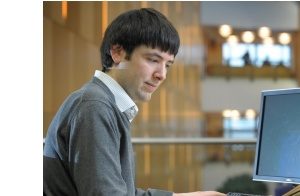Role: Research Fellow
Company: Queen’s University Belfast
Track Record:
What does your role involve?
I have recently started as a Research Fellow based in the School of Psychology at Queen’s University as part of the university’s inter-disciplinary Improving Children’s Lives Initiative.
I analyse large nationwide datasets following children from infancy throughout their lives. This information is based on interviews with the children, parents and teachers about a child’s health, education and social demographics etc.
We use this information to identify important risk factors and positive influences for children growing up in the 21st century.
I attend training events and network with other researchers within the university and institutions to share experience and expertise. I also give lectures in psychology and am a thesis supervisor for final year undergraduate students.
How did you get into the position in the first place?
This is my first research job which was a natural progression from my PhD studies.
Did you always want to work in this sector in some capacity?
The first career pathway I embarked upon was in air traffic control, completing my training in Europe.
After returning home I decided on a change in direction, applying for a degree in psychology with the view to becoming a clinical psychologist. I also became a listening volunteer with Samaritans to learn about how to help people going through a difficult time in their lives and gain experience in the area.
The undergraduate degree in psychology covers a diverse range of topics on the human mind and behaviour. I found the modules covering child development and cognition interesting and enjoyed the research methods part of the degree.
My ambitions changed again and a career in research became my aim.
What training or previous experience do you have that has helped you in your current role?
The PhD course gave me the opportunity to build on research skills and I gained the experience of applying my knowledge and skills from the undergraduate degree by designing and running experiments, analysing data and disseminating the results.
The volunteer work I continue to do with Samaritans has given me transferable skills that I apply in my work life.
It showed me how listening to what others have to say is not always easy and that we often don’t do it well; especially when it involves friends and family where our immediate aim is to problem solve.
What is your organisation’s role in the local community?
The Improving Children’s Lives Initiative at QUB runs an ambitious programme of research, communication and advocacy activities which seeks to achieve lasting improvements in the health and wellbeing of children and young people.
We aim to achieve this by encouraging interdisciplinary working; enhancing research capacity; and building further on the extensive range of collaborative relationships we already have with other research centres and organisations responsible for providing children’s services
And how does your role fit in as part of this?
I am conducting research investigating how children’s lives and circumstances change over time. This identifies important factors that contribute positively to the life outcomes of children, and those factors that seem to have a negative impact on development.
The more we know and understand about how various aspects of a child’s life and environment affect their future health, academic and social circumstances, the better placed we are to advise on provisions for improving the lives of future generations.
What sort of personality and qualities do you need to do your job successfully?
A curious mind and strong interest in your area of research is a must. Most researchers work in teams that can span institutions and continents, sharing information and discussing the best approaches to answering their questions.
Good interpersonal skills and an awareness of different cultures are therefore very important. Research is undertaken to gain a better understanding of the world around us, so it is important to be enthusiastic about your findings and to be able to report them in a clear and concise way.
What are the biggest rewards of the job? And the biggest challenges?
I work with busy, passionate people from different areas of expertise. The biggest reward for me is being part of that team, working in that atmosphere and learning first hand from them.
I also get a huge reward from my lecturing and tutoring responsibilities. A student asking you a question you can’t answer is, in a strange way, very rewarding because you know you have contributed to their interest in the topic and that they have thought about it in a way you haven’t. That’s what university is all about.
The biggest challenge is the job itself — working at the limits of what is known about children’s lives in NI and contributing to the work of the Improving Children’s Lives Initiative and its objective of achieving lasting improvements in the lives of children and young people in Northern Ireland.
What’s the best piece of advice you’ve ever been given?
The best piece of advice I have come across is a quote from the physicist Richard Feynman: “The first principle is that you must not fool yourself, and you are the easiest person to fool”.
What do you enjoy doing outside work?
As a Samaritan volunteer, this involves manning the telephone, email and text-message helplines as well as talking to people who drop into the branch.
In my six years as a Samaritans volunteer I have been involved with interviewing and selecting new volunteers, speaking at outreach events and I am coming to the end of my term as a deputy director of the Belfast branch with responsibility for the email helpline.


